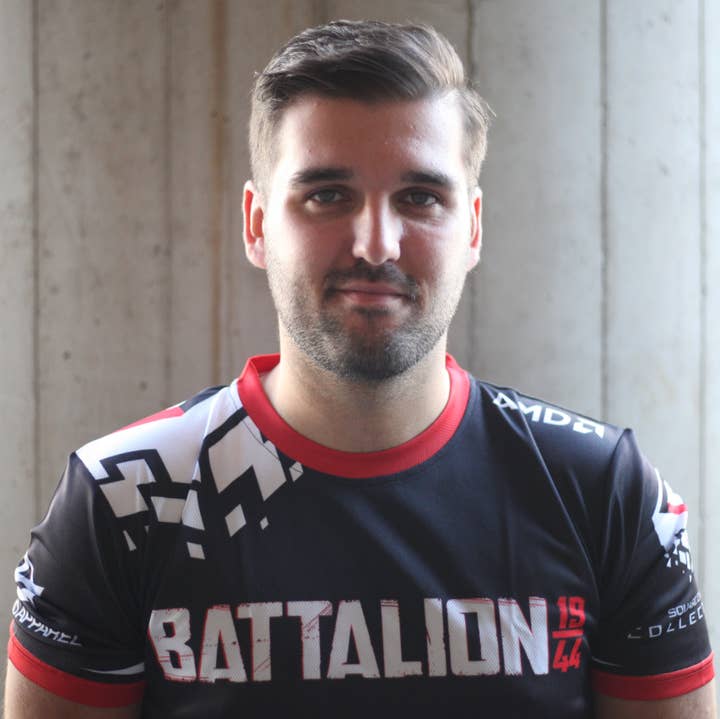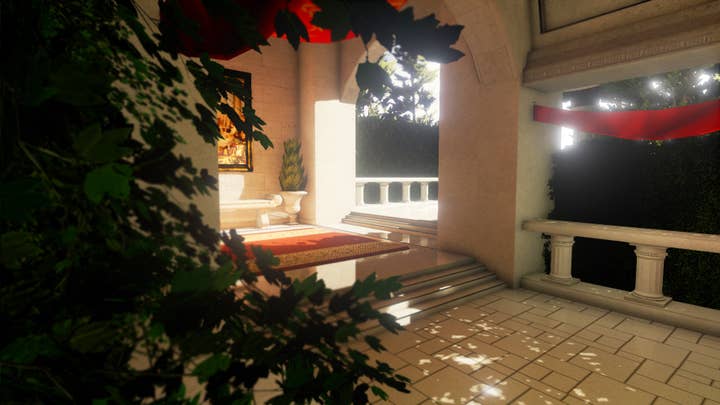"You need a publisher to survive on Steam"
Bulkhead Interactive's Joe Brammer says games need to be "something really special" to succeed organically
Discoverability problems on Steam have reached the stage where it's essential that indie and smaller developers seek out a publishing deal.
That's according to Bulkhead Interactive producer Joe Brammer, who spoke to GamesIndustry.biz at Gamescom about indie attitudes towards publishers, lessons learned from his first few releases, and the increasingly crowded PC market.
Back in December, it emerged that more than 4,200 games were released in 2016 alone - accounting for 38% of the marketplace's entire back catalogue - and there has been no shortage of new releases this year. While the platform has become a go-to destination for self-publishing indies, Brammer says it's harder than ever to generate decent sales this way.

"Nowadays you pretty much need an indie publisher, or you need to have an amazing game," he tells us. "It would have to be incredible. That doesn't mean a 'good enough' game is a bad one, but it has to be something really special to be picked up organically - something like PUBG.
"The market is changing. Indie publishers are becoming less like indie publishers and more like smaller publishers, but smaller publishers are totally acceptable. That doesn't mean they're worse now."
Brammer's own game, the upcoming WW2 multiplayer FPS Battalion 1944, is being published by Square Enix Collective following a successful partnership between the two firms for The Turing Test - an arrangement the producer is more than pleased with.
"They listen to us," he says. "No other indie publisher can give you the power of a megacorporation like Square Enix, but still let you maintain the finesse of that indie mentality. Not that we're super indie, of course."
But why go for a publisher at all? There seems to be the lingering perception that publishers are greedy and out to exploit smaller and independent developers - which has led to many new indie publishers referring to themselves as labels instead.
"Indie publishers are becoming less indie and more like smaller publishers, but smaller publishers are totally acceptable"
Brammer's desire for a publisher stems from his team's experience with its first release, Pneuma: The Breath of Life - a launch that also introduced him to how challenging the market on Steam can be. He maintains that while some indies may still feel apprehensive about publishers, they are necessary because "the industry has changed massively."
While Pneuma wasn't a critical or commercial hit, it sold well enough to let the developers continue making games and move on to The Turing Test. When it came to launching the puzzle game, Brammer and his team revisited Pneuma's performance and realised while it had sold well enough on Xbox and PlayStation, Steam sales fell short of the mark.
"We decided if we're going to do anything on Steam, we need a publisher," he says. "We need someone with those contacts, someone that can give us a bit of help and the punch that we needed. When we went to Square we said we didn't need money; we just needed help to get the game on Steam, so they actually only helped us with the Steam version. After doing that, I'd have rather they'd taken the Xbox One version as well because they just did a phenomenal job."
Brammer admitted his team has probably been guilty of "lowballing ourselves" by not asking publishers for more money in the past, perhaps giving the perception that the games are cheap and therefore of a lower quality.

Steam has already been identified as a difficult market for new developers trying to make their mark, thanks largely to the aforementioned discoverability problems. Valve has attempted to revamp its submission process, killing the previous Greenlight system in favour of Steam Direct, which charges developers $100 to submit a game to the marketplace.
However, following the launch of Direct in June, Steam actually saw a spike in the number of games submitted - as many as 213 in a single week, and 730 in a four-week period. Valve has said that the new system is not necessarily designed to reduce the number of submissions but to ensure those that do get through are genuine.
Brammer believes the issue of discoverability is not one that Valve is particularly motivated to solve: "I had a meeting once with a platform holder and I made a joke about the App Store, saying, 'It's terrible, you'll never get found' - and they said they'd love to have the App Store. The platform holders would absolutely love to have millions of games come out and the good ones rise to the top, almost organically.
"The community sees [discoverability] as a problem and Steam says they'll fix it, but all they really do is rehash it"
"Frankly, I don't think Steam sees it as a problem. The community sees it as a problem and Steam says they'll fix it, but all they really do is rehash it. I don't know why they've made the changes they made when they got rid of Greenlight, but they're not really stopping anything; they're just opening things up even more. That's just the 2017 market and how it works: removing the barrier to entry and creating more content, hoping the good quality content will rise to the top but it's very difficult."
Instead, reducing the number of games flooding the PC marketplace - and by extension improving the chances of discovery and success - will partly come down to developers. Brammer encouraged studios to "be more honest" with themselves about the quality of their game - and if it's not up to scratch, scrap it. His team did just that with a robot football game it was building before work began on Pneuma.
"After three weeks, we had it working in Unity," says Brammer. "Then I made a joke saying, 'Why don't we switch to Unreal Engine?' and we all looked at each other and said, 'Is our game a bit shit?' So we threw it away - but those three weeks were the most important of my career as it led to me working on Pneuma, The Turing Test and today Battalion 1944.
"So developers need to start effectively nutting up, saying 'My game is crap, I need to do better'. Learn to read the market, because that's another major difference now: you can't just release anything."
Even if a game is of a high quality, Brammer still encourages studios to seek a publisher rather than hoping for PlayerUnknown levels of surprise success. We asked what studios should look for in a publisher, what they should expect or demand.
"Well, if you need to demand something from a publisher, if it's something they don't want to give to you, that's the start of a bad relationship," he says. "Debbie [Bestwick] at Team 17 says if you go for a fair deal where both sides are happy, you'll get a better deal out of it. There's always a bit of push-pull, but if you have to demand something they don't want to give, maybe it isn't the right fit.
"Speak to everyone, get everyone's opinion, but if you find someone you like working with [that's key]... because you're going have to trust people with your game. For me, reliability is one of the most important thing. If you find someone you think you can rely on, you should go with them.
"No one's going to care about your game as much as you are, so you have to find the guys you think care about it enough."
